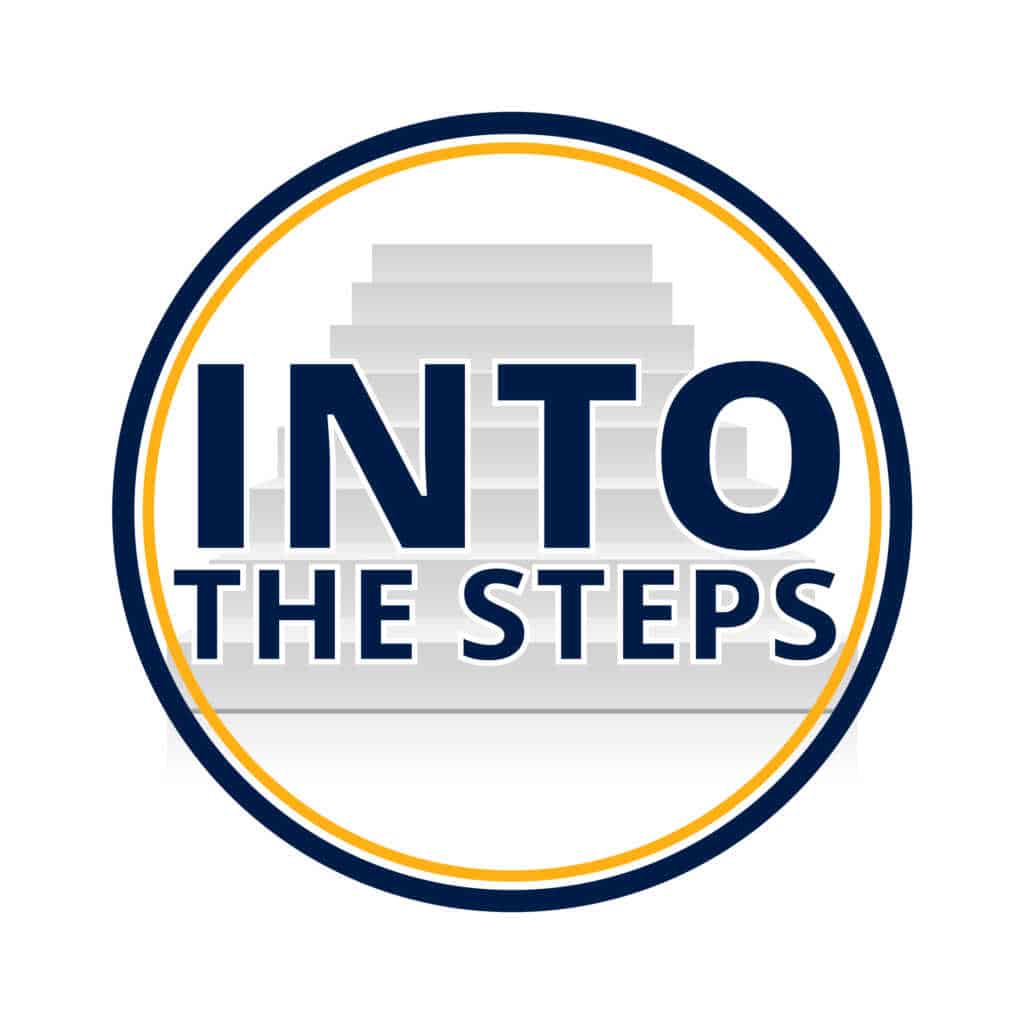Step 9
Step Nine Summarized
In Step Nine, we make amends to the individuals and institutions we have harmed. An amends is not merely a verbal apology — it is both an admission of wrongdoing, and the sincere intention to change the behavior in ourselves that caused such harm. Amends can come in many forms: they can be a sit-down apology; an honest, heartfelt letter; a financial reimbursement; an act of service; or what is called a “living amends’ — an agreement to live differently in the future. Our sponsor and our Higher Power will help us determine what amends we should make and how. If we have worked the previous eight Steps thoroughly, we should be able to show up to our amends as a changed individual. The amends process can be a very healing process for both ourselves and our loved ones. By “cleaning our side of the street” we will find new self-confidence, a sense of integrity and intimacy with others.
Into the Steps
Into the Steps is a series of articles that dives deep into each of the 12 Steps. While Guardian Recovery is not affiliated with Alcoholics Anonymous, we have been utilizing the 12-Step process in a treatment setting for more than 15 years. We have found that the steps, especially in combination with our clinical therapy offerings, are a powerful tool for helping individuals transform their lives and find lasting freedom from addiction.
It is highly encouraged that you do not attempt to take these steps alone, but rather with a trusted guide called a sponsor who can walk you through them and be your support. Or, you can come work them at a Guardian Recovery treatment program. Unlike many other treatment centers, we don’t just teach individuals about the steps, we actively work them. Find a facility here.
Steps Recap
In Steps Four and Five, we become very clear on the flaws within ourselves that have contributed to the trouble in our lives. In Step Six, we make a list of our character defects and begin asking ourselves if we are ready to give them up. Some of our character defects are selfishly beneficial to us in some way, so we are not immediately ready to give them up. In order to become the best people we can be, however, we need to face the fact that our flaws are standing in the way of our ability to help others. In Step Six, we become ready and willing to give up our character defects. In Step Seven, we ask our Higher Power to relieve us of our flaws. We realize that surrendering our defects is the same process as surrendering our addiction. We have little power to change ourselves using only our own will power. We need our Higher Power’s help. After we have completed Step Seven and asked to have our defects removed, we can have faith that our Higher Power is putting us in position to make honest amends — to show up to our amends as changed individuals. In Step Eight we make a list of all the people we have harmed over the course of our lives. When we have resistance to making amends to those people, we pray for our Higher Power to give us the willingness. When we are ready and willing, we move on to Step Nine, which is to make our amends.
Step Nine Explained
In the Ninth Step we are tasked with approaching individuals and institutions whom we’ve harmed to correct our wrongs. Before going to make an amends, we should feel confident that we have transformed enough through the previous Steps that we will show up to our amends as a different person than we were when we caused harm.
Whenever possible, we sit down face-to-face with the other person and acknowledge the wrongs we committed, and the harm we think we caused. We ask how these wrongs can be corrected. And we let the other person have an opportunity to tell us how they felt we harmed them. This can be a humbling process — to hear from another person exactly how we affected them.
We do not bring up anything the other person did in the past. We focus only on our own wrongs.
We also do not tell the other person anything that will cause them, or others, more harm than good. The A.A. Twelve & Twelve says that “we cannot buy our own peace of mind at the expense of others.” This means that if confessing something previously unknown to the other person in order to alleviate our guilt is going to cause them more harm, then we will have to silence our confession and make amends in another way. Our Higher Power and sponsor will help us to determine what amends might fall into this category.
Our amends usually fall into one of a few categories:
Full Amends – This is an amends we make face-to-face and correct the damages directly. This could mean making a financial amends for the full amount of money stolen. It could mean repaying the other with quality time and mending the relationship. It could be a heartfelt apology and promise to live differently. Whenever possible, and when doing so will not cause others harm, we should make a full amends.
Partial Restitution – These are the amends we have to carefully navigate because complete disclosure could do more harm than good. During these amends, we admit what we can that will not cause harm. We repair the relationship to the best of our ability. And we live differently going forward.
Deferred Amends – These are amends that are either not possible yet due to circumstance, or are amends that the timing is not deemed appropriate by our sponsor. We defer these amends only as long as absolutely necessary.
Indirect Amends — These are the amends we are unable to make face-to-face. These amends could involve a written letter. They could involve making a donation to charity in lieu of making direct financial amends. Or these could be what we call “living amends,” which is to commit to living differently.
Resisting Making Your Amends?
The Twelve & Twelve tells us that we are going to be tempted to skip some of the more humiliating and dreaded meetings. It says:
We should avoid making excuses for ourselves or procrastinating. If we have lost our willingness for a particular amends, we need to return to Step Eight and ask our Higher Power to help us become willing.
“Above all, we should try to be absolutely sure that we are not delaying because we are afraid,” reads the Twelve & Twelve. “For the readiness to take the full consequences of our past acts, and to take responsibility for the well-being of others at the same time, is the very spirit of Step Nine.”
Into the Steps
The Benefits of Making Amends
While the amends process can be an intimidating one, the payoff of completing this step is enormous.
The promises of the Ninth Step in the Big Book of Alcoholics Anonymous give us a preview of what we can expect from completing our amends:
- “If we are painstaking about this phase of our development, we will be amazed before we are halfway through.
- We are going to know a new freedom and a new happiness.
- We will not regret the past, nor wish to shut the door on it.
- We will comprehend the word serenity and we will know peace.
- No matter how far down the scale we have gone, we will see how our experience can benefit others.
- That feeling of uselessness and self-pity will disappear.
- We will lose interest in selfish things and gain interest in our fellows.
- Self-seeking will slip away.
- Our whole attitude and outlook upon life will change.
- Fear of people and of economic insecurity will leave us.
- We will intuitively know how to handle situations which used to baffle us.
- We will suddenly realize that God is doing for us what we could not do for ourselves.”
“Are these extravagant promises? We think not. They are being fulfilled among us-sometimes quickly, sometimes slowly. They will always materialize if we work for them.”
9th Step Resources
Pages 76-83 in the Big Book of Alcoholics Anonymous is a good resource for learning more about how to approach amends. It gives examples of amends, and lays out some clear guidelines.
The Ninth Step in the Twelve & Twelve is another great place to read about the amends process.
And here is a YouTube video of a Big Book study by two sober alcoholics about taking their Eighth & Ninth Steps
Guardian Recovery & the Ninth Step
Going through the amends process can trigger difficult emotions. Repairing our relationships can be difficult. If you feel you or a loved one might benefit from taking the Steps in a structured, supportive and professional environment, you might consider working the Steps at a Guardian Recovery facility. While we are not affiliated with Alcoholics Anonymous in any way, our programs have utilized the 12-Step recovery process for more than 15 years. At our facilities we don’t just teach you about the Steps. We actively take you through them. While in residential inpatient and partial hospitalization treatment, individuals generally complete Steps 1-7. However, many individuals continue on in our Intensive Outpatient Programs during which they finish all 12 Steps. To learn more about Guardian Recovery’s 12- Step treatment facilities, contact us today. Our team of compassionate Treatment Advisors are available 24/7 to help you craft a plan for your recovery. Freedom from addiction is possible. Find hope at Guardian Recovery.
Get Started Now
Give us a call 24/7


